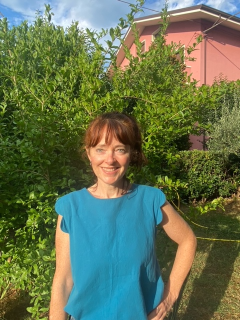Social Anthropology Short Courses
Dr Morna Finnegan is a Teaching Fellow who teaches Social Anthropology and gives us an insight into what a class in social anthropology entails and why you should book one!
About Dr Morna Finnegan
This week we hear from Dr Morna Finnegan; a social anthropologist and mother whose fieldwork was with BaYaka hunter-gatherers in the Republic of Congo. Since finishing her PhD, she has worked as an independent researcher and writer, and has published several articles and a co-edited volume on human origins. She has been the Social Anthropology Teaching Fellow at COL since 2018.
What is social anthropology?

The stories we tell matter, especially the collective stories, and especially those available to us in moments of crisis. How do we gain perspective on the social and political reality through which we routinely navigate, without alternative models? The ability to contrast our own personal or cultural position and experience with diverse (often radically different) positions and experiences, changes not only our way of seeing but, ultimately, our ability to respond and make informed choices.
At its most basic, social anthropology introduces us to the astonishing kaleidoscope of alternative human realities.
Using a disciplinary body of research (the ethnographic record) accumulated over a century, we read, think and feel our way into the lives of others. We look through the eyes of the Mapuche kinsperson whose ‘self’ extends into the lives of multiple others. We become the Piro infant, cradled in its nest of nshinkanchi: compassionate mind. We learn why Mauss claimed that to seize ‘the spirit of the gift’ was ‘dangerous and mortal’, and we compare this attitude with capitalist principles. We ask if witches are real, and then meet a few…
Tell us about the course...
This course provides a friendly introduction to social anthropology, step by step, beginning with unpacking core principles and terms such as ‘participant observation’ and ‘reflexivity’. How do anthropology students go ‘into the field’? Why does the discipline ask its apprentices to live with (and often as) the people they want to learn from? Why does this method yield ‘a material of extraordinary richness and depth’ (Thomas Eriksen)?
The course progresses to a thematic journey through important practical examples (classic and contemporary), drawing on a broad range of different societies.
Working as a group, we will examine and discuss the relevance of cultural practices and ideas, and weigh our discussions against some of the discipline’s core debates. Some of the most exciting work currently emerging from anthropology moves between social anthropology, archaeology and evolutionary psychology, and we will explore why this holistic approach offers important new political insights.
Why should we take a short course in social anthropology?
If you’re considering taking social anthropology and wondering if your previous experience is relevant, Dr Morna says "If you’ve lived in any kind of social setting – if you’ve had experience of birth, childhood, puberty, work, relationships, education, religion, gender or aging – you’re prepared!"
We are all, to some extent, anthropologists. Most of us travel through the detail of our personal and local lives with questions about ‘the bigger picture’. Perhaps you’ve been asking these questions for a long time, or perhaps the Covid era has raised them to the surface. No subject offers us insight into or a sense of perspective on the bigger picture like social anthropology, where the frame expands to incorporate the whole species, in its dazzling diversity. Thomas Eriksen has claimed that ‘anthropology should have changed the world’. Come find out why!
Book a course
If this sounds like something you would like to explore further, we have courses still available:
Social Anthropology: Participant Observation, March
Book Intro to Social Anthropology, Term 3

